


lovethispic.com
Many effects of a lack of sleep, such as feeling grumpy and not working at your best, are well known. But did you know that sleep deprivation can also have profound consequences on your physical health?
One in three of us suffers from poor sleep, with stress, computers and taking work home often blamed.
However, the cost of all those sleepless nights is more than just bad moods and a lack of focus.
Regular poor sleep puts you at risk of serious medical conditions, including obesity, heart disease and diabetes – and it shortens your life expectancy.
It’s now clear that a solid night’s sleep is essential for a long and healthy life.
How much sleep do we need?
Most of us need around eight hours of good-quality sleep a night to function properly – but some need more and some less. What matters is that you find out how much sleep you need and then try to achieve it.
As a general rule, if you wake up tired and spend the day longing for a chance to have a nap, it’s likely that you’re not getting enough sleep.
A variety of factors can cause poor sleep, including health conditions such as sleep apnoea. But in most cases, it’s due to bad sleeping habits.
Find out the common medical causes of fatigue.
What happens if I don’t sleep?
Everyone’s experienced the fatigue, short temper and lack of focus that often follow a poor night’s sleep.
An occasional night without sleep makes you feel tired and irritable the next day, but it won’t harm your health.
After several sleepless nights, the mental effects become more serious. Your brain will fog, making it difficult to concentrate and make decisions. You’ll start to feel down, and may fall asleep during the day. Your risk of injury and accidents at home, work and on the road also increases.
Find out how to tell if you’re too tired to drive.
If it continues, lack of sleep can affect your overall health and make you prone to serious medical conditions, such as obesity, heart disease, high blood pressure and diabetes.
Here are seven ways in which a good night’s sleep can boost your health:
1. Sleep boosts immunity
If you seem to catch every cold and flu that’s going around, your bedtime could be to blame. Prolonged lack of sleep can disrupt your immune system, so you’re less able to fend off bugs.
2. Sleep can slim you
Sleeping less may mean you put on weight! Studies have shown that people who sleep less than seven hours a day tend to gain more weight and have a higher risk of becoming obese than those who get seven hours of slumber.
It’s believed to be because sleep-deprived people have reduced levels of leptin (the chemical that makes you feel full) and increased levels of ghrelin (the hunger-stimulating hormone).
3. Sleep boosts mental wellbeing
Given that a single sleepless night can make you irritable and moody the following day, it’s not surprising that chronic sleep debt may lead to long-term mood disorders like depression and anxiety.
When people with anxiety or depression were surveyed to calculate their sleeping habits, it turned out that most of them slept for less than six hours a night.
4. Sleep prevents diabetes
Studies have suggested that people who usually sleep less than five hours a night have an increased risk of having or developing diabetes.
It seems that missing out on deep sleep may lead to type 2 diabetes by changing the way the body processes glucose – the high-energy carbohydrate that cells use for fuel.
5. Sleep increases sex drive
Men and women who don’t get enough quality sleep have lower libidosand less of an interest in sex, research shows.
Men who suffer from sleep apnoea – a disorder in which breathing difficulties lead to interrupted sleep – also tend to have lower testosterone levels, which can lower libido.
6. Sleep wards off heart disease
Long-standing sleep deprivation seems to be associated with increased heart rate, an increase in blood pressure and higher levels of certain chemicals linked with inflammation, which may put extra strain on your heart.
7. Sleep increases fertility
Difficulty conceiving a baby has been claimed as one of the effects of sleep deprivation, in both men and women. Apparently, regular sleep disruptions can cause trouble conceiving by reducing the secretion of reproductive hormones.
How to catch up on lost sleep
If you don’t get enough sleep, there’s only one way to compensate – getting more sleep.
It won’t happen with a single early night. If you’ve had months of restricted sleep, you’ll have built up a significant sleep debt, so expect recovery to take several weeks.
Starting on a weekend, try to add on an extra hour or two of sleep a night. The way to do this is to go to bed when you’re tired, and allow your body to wake you in the morning (no alarm clocks allowed!).
Expect to sleep for upwards of 10 hours a night at first. After a while, the amount of time you sleep will gradually decrease to a normal level.
Don’t rely on caffeine or energy drinks as a short-term pick-me-up. They may boost your energy and concentration temporarily, but can disrupt your sleep patterns even further in the long term.
10 tips to beat insomnia
12 Surprising Ways Sleep Makes You Happy, Healthy and Wealthy
This Guy Slept For Only 5 Hours A Day As An Experiment
Do you actually need 7–8 hours of sleep every night? One man sought to find out.
If you’re like most of the population, you probably sleep in what’s called a “monophasic pattern,” which means you do all your sleeping in one 7–8-hour chunk. But what would happen if you slept in shorter nap-like phases? I decided to find out:
Polyphasic sleeping is a method of sleeping where people get their rest in multiple phases throughout the day. So, in theory, they can function on less sleep.
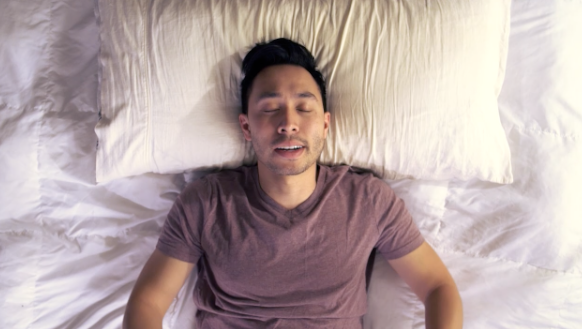
One of the more controversial forms of polyphasic sleeping is the “Uberman schedule,” where people sleep for six 20-minute naps throughout the day. This cuts their sleep-time down to two hours.
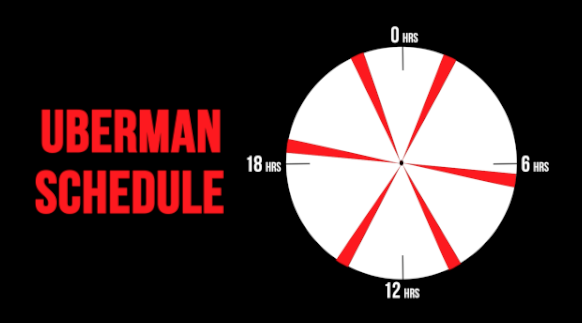
This could add a whooping 20 years of awake time to someone’s lifespan.
But, since this schedule is one of the more extreme forms of polyphasic sleeping, I consulted a current polyphasic sleeper to figure out something more practical for me.
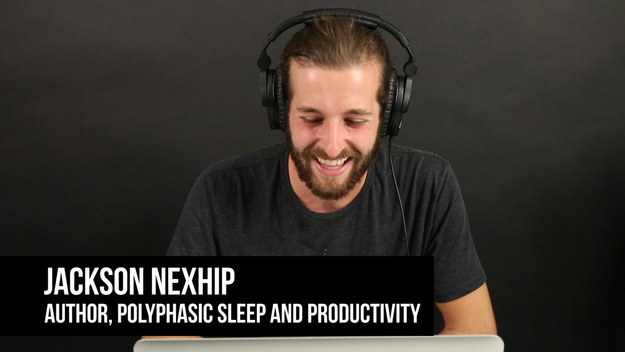
I decided to follow the same sleep schedule as Jackson, which is called the “Everyman.” This schedule allows you 4.5 hours of sleep at night, and two 20-minute naps during the day. This means I will get a little over five hours of sleep a day.
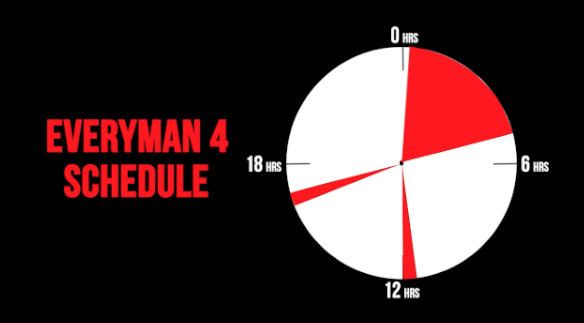
Since I was a tad worried about messing with my body/health, I decided to consult Dr. Alon Avidan, a sleep specialist at UCLA.
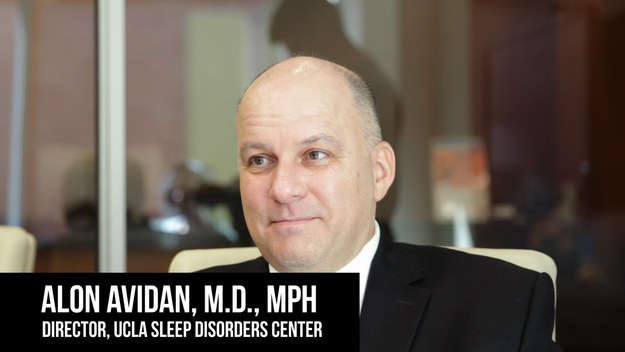
The doctor warned me it wasn’t a great idea, and said most people needed more sleep than that.
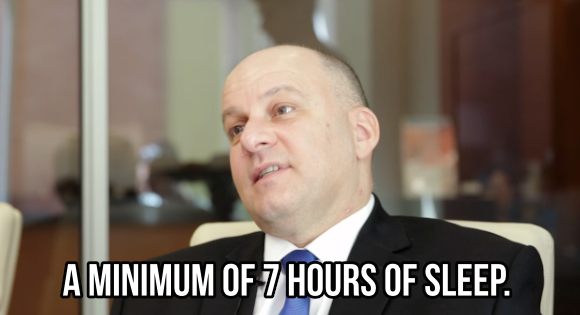
Day 1 and Day 2 were especially hard for me. By Day 2, it was hard to get the energy to work out or complete daily functions.
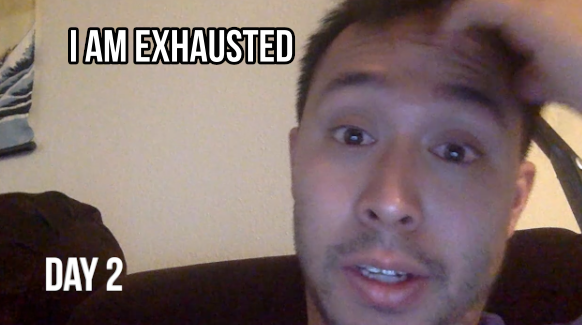
Dr. Avidan warned me of the short-term effects, like slower reaction time, memory problems, cognitive problems, lack of creativity, and increased irritability.
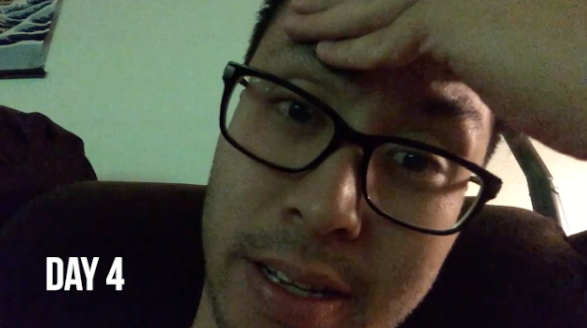
“I’m so brain dead right now, I’m incapable of doing anything.”
By Day 5, things started to get…weird.

I couldn’t really focus and had a serious case of the giggles.

By Day 7, I couldn’t handle it anymore and had to cave and get some extra sleep.

Overall, was it an experience I would recommend? Definitely not. Maybe for some people who are genetically designed to sleep this way it would work. But for the majority, a good 7–8 hours is where it’s at.
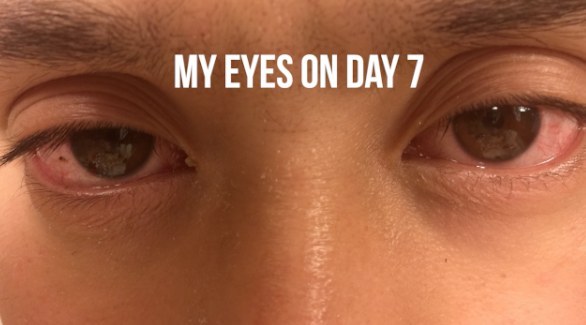
.buzzfeed.com
